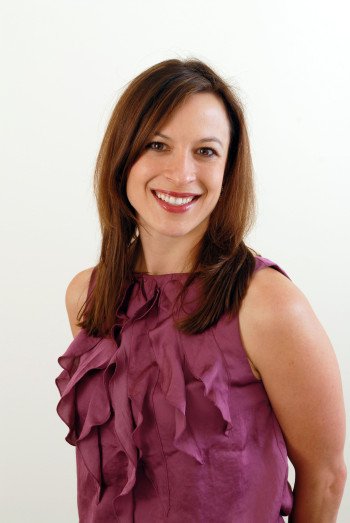I tell people I have the greatest job in the world. I get to help people have babies. I have felt that way about the field of infertility since my first experience as a resident in an infertility clinic.
 Seeing how lives were so deeply affected by the pain of being childless, and the overwhelming joy when their dreams of becoming a parent were finally realized impacted me deeply, and I decided to devote my life to helping people overcome infertility.
Seeing how lives were so deeply affected by the pain of being childless, and the overwhelming joy when their dreams of becoming a parent were finally realized impacted me deeply, and I decided to devote my life to helping people overcome infertility.
I remember the year leading up to when my husband, Jeff, and I decided to start trying to have a child. I struggled with irregular cycles and feared that I may have to endure the same painful journey that many of my patients have endured.
Fortunately, I did not end up having great difficulty conceiving. However, that initial fear of the possibility of infertility provided tremendous insight for me to understand what my patients feel every time they walk through my clinic doors.
When I became a mother, the incredible and consuming love that I felt for my daughter created even more passion in me to dedicate myself to my infertile patients. If I could help other people experience the joy that I felt when becoming a mother, what better calling could I find?
Now, after 11 years in the field of infertility, and having cared for thousands of infertility patients, having listened to their stories, celebrated their pregnancies and cried with them during their losses, I feel just as dedicated and passionate about caring for infertile patients as I did when I chose the field.
Too often, women and couples struggle in silence. Infertility still has a stigma, and people just don’t like to talk about it, which makes people who already feel broken by infertility feel even more isolated and abandoned by society.
Friends keep getting pregnant, family doesn’t understand why it hurts to be at kids’ birthday parties or Mother’s day church events, and life keeps racing by despite the huge void of childlessness. For many women and couples, facing infertility is the first real struggle they’ve had in life.
Given our patients are often young, they may not have had any health challenges so far, and many have been very successful in other areas in life. So to finally hit a wall and not achieve something they want more than anything they’ve ever wanted before, it hurts more than many can imagine.
Start Treatment
You’re not alone
My hope is that by raising awareness, we reduce the stigma, and we start to have more conversations about infertility. By demystifying infertility (and realizing that most of us will know someone close to us that has had it), we can begin to treat it like any other medical condition that deserves compassion and treatment.
Seeking care and treatment doesn’t mean someone is forcing fate or playing God (which is a question we often get in consultations), rather, it is seeking care for something that isn’t happening naturally when it should be.
The norm is that people should get pregnant on their own – when they don’t, we should treat it just like we care for diabetes and hypertension, with effective medical treatments. No one would say you are “playing God” by taking an antihypertensive medication, rather, you’d say you’re being a compliant patient and treating a medical condition.
Infertility treatment deserves the same respect; by increasing awareness, my hope is that more patients will feel empowered to ask for help from their doctor, their family and their friends, and reach out for the help they need and deserve.
National Infertility Awareness Week
National Infertility Awareness Week® (NIAW) is a movement that began in 1989. The goal of NIAW is to raise awareness about the disease of infertility and encourage the public to understand their reproductive health.
